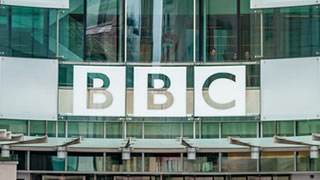8% of BBC workforce to be LGBT by 2020
- |

The BBC has announced that it intends to ensure that LGBT people will comprise 8% of its workforce by 2020, in a bid to be “truly representative” of the UK population.
The new 'diversity strategy' has also set quotas for women (with a target to bring up the current 48.4% up to of 50%), the disabled (8%), and black, Asian and other ethnic minority backgrounds (15%).
The over-representation of those who identify as LGBT contrasts with the exclusion of religion and faith in the proposed strategy, despite both being protected characteristics under equality legislation.
Protected characteristics
The BBC's new diversity strategy includes some of the protected characteristics under the 2010 Equality Act – disability, race, sex and sexual orientation.
However, there are several others which have not been mentioned, including age, pregnancy and maternity, and religion and belief.
According to the Office for National Statistics (ONS), 59.3% of Britons self-identified as Christian in 2011.
Although this percentage is likely to have fallen slightly, this is still a significant number.
Over-representation
In a statement, a BBC spokesperson said:
"Significant steps forward have been taken but it is important to us that the BBC is truly representative of our all our audiences - diversity is more than any single characteristic.
"We are the BBC and must be held to a higher standard. The range of the BBC's programme and services, and the fact that we will make sure that our approach to diversity is hardwired in everything we do, make these targets even more ambitious."
However, the BBC's quota for those who identify as LGBT is much higher than the actual UK percentage. In 2013 the ONS found that those who identify as LGBT make up only 1.6% of the UK population, which is far lower than the BBC's target, although the LGBT pressure group Stonewall believes the number is closer to between 5-7%.
The BBC's proposed quota, then, would be significantly over-representing a small demographic.
'Innate liberal bias'
Former political editor Andrew Marr has admitted in the past that the broadcasting giant's workforce is unrepresentative of the UK population.
In 2007, he said that the BBC is "a publicly-funded urban organisation with an abnormally large proportion of younger people, of people in ethnic minorities and almost certainly of gay people, compared with the population at large".
All this, he added, "creates an innate liberal bias inside the BBC".
This has led Christian Concern's Chief Executive, Andrea Williams, to question how the BBC will ensure that religion and belief will also be fairly represented.
"It is disproportionate that the LGBT population should be over-represented within the BBC, yet no provision be made for Christians, who represent a higher proportion of society. This is narrowcasting rather than broadcasting," she commented.
Related Links:
BBC pledges half of workforce will be women by 2020 (BBC)
How to count how many people are gay (Economist)
BBC presenter in serious breach of editorial guidelines
New BBC documentary 'cheerleading' assisted suicide
